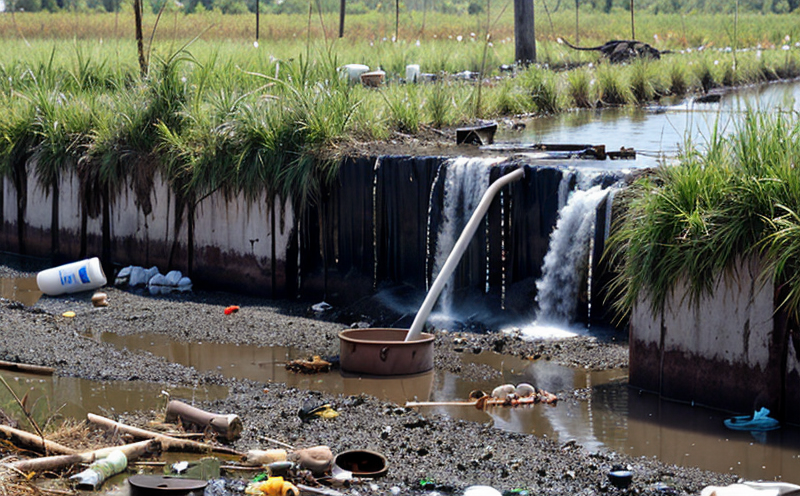Automobile Cabin Pollutant Testing
The automobile cabin is a critical environment where occupants spend significant time. Ensuring its air quality is paramount for health and comfort. Automobile cabin pollutant testing involves the analysis of volatile organic compounds (VOCs), particulate matter, and other pollutants that can affect indoor air quality.
These tests are essential to ensure compliance with regulatory standards such as ISO 16000-5, which specifies methods for measuring total volatile organic compound content in air. The testing process involves several key steps:
- Sampling: Cabin air samples are collected using appropriate sampling devices and techniques.
- Preparation: Samples undergo preparation to ensure they are suitable for analysis, which may include dilution or concentration.
- Analytical Methods: Various analytical methods such as gas chromatography (GC), Fourier transform infrared spectroscopy (FTIR), and mass spectrometry (MS) can be employed depending on the pollutants being tested.
- Data Analysis: Results from these analyses are compiled, and statistical analysis is performed to determine compliance with set standards.
The testing process ensures that the air quality in automobile cabins meets or exceeds the stringent requirements of international standards. This not only enhances passenger comfort but also supports compliance with health and safety regulations.
Automobile cabin pollutant testing is particularly important as it helps identify potential sources of pollutants, such as materials used in car interiors, adhesives, paints, and other chemicals. By identifying these issues early on, manufacturers can implement corrective measures to improve air quality within the vehicle.
In recent years, there has been growing concern over the effects of indoor pollutants on human health. This has led to increased demand for rigorous testing procedures aimed at minimizing exposure to harmful substances. Testing laboratories like Eurolab play a crucial role by providing accurate and reliable data that contribute to better decision-making in the automotive industry.
Benefits
The benefits of automobile cabin pollutant testing extend beyond mere compliance; they offer significant advantages for both manufacturers and consumers. For manufacturers, these tests provide valuable insights into product performance, helping to identify areas where improvements can be made.
- Enhanced Product Quality: Identifying pollutants early in the development process allows for targeted interventions that enhance overall cabin air quality.
- Better Compliance: Ensures adherence to relevant international standards, thereby protecting against legal issues and maintaining a positive brand image.
- Improved Consumer Trust: Consumers are increasingly aware of the importance of indoor air quality. By offering cleaner cabins, manufacturers can build trust and loyalty among their customer base.
For consumers, the benefits include improved health outcomes due to reduced exposure to harmful pollutants. Cleaner cabins contribute positively to respiratory health, especially for those who spend long hours inside vehicles daily.
In addition, these tests can lead to innovation within the industry by driving research into new materials and technologies that reduce pollutant emissions. This ongoing advancement in technology contributes significantly to maintaining high standards of automotive quality worldwide.
Eurolab Advantages
At Eurolab, we pride ourselves on delivering exceptional service through advanced expertise and cutting-edge facilities. Our team of highly qualified professionals combines extensive experience with state-of-the-art equipment to ensure accurate results every time.
- Comprehensive Services: We offer a wide range of services tailored specifically to meet the needs of our clients, including environmental pollutant testing for automobile cabins.
- Advanced Equipment: Utilizing top-tier analytical instruments ensures precise measurements and reliable data collection. Our equipment adheres strictly to international standards such as ISO 16000-5.
- Certified Personnel: Our staff are trained experts who stay current with the latest developments in testing methodologies and regulations.
Our commitment to quality does not stop at our facilities; we also emphasize client satisfaction by providing clear, concise reports that are easy to understand. This transparency fosters trust between us and our customers, ensuring long-term relationships built on reliability and excellence.
International Acceptance and Recognition
- ISO 16000-5: Our testing methods for automobile cabin pollutant testing are aligned with ISO standards, ensuring consistency across borders.
- ASTM D6849: We also adhere to ASTM standards which provide additional layers of validation and acceptance in the United States.
- EN 13725: Compliance with European norms ensures our services are recognized not only domestically but internationally as well.
The acceptance of these tests by international bodies underscores the reliability and accuracy of our work. It allows manufacturers to confidently present their products on global markets while meeting stringent environmental and health requirements.





